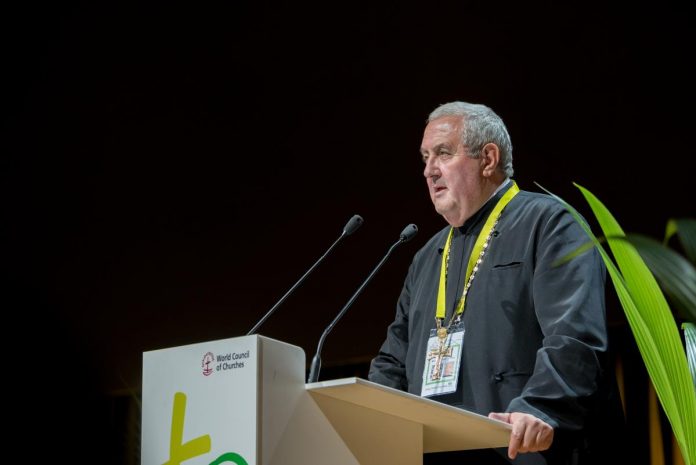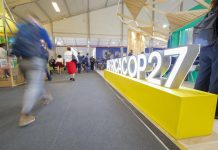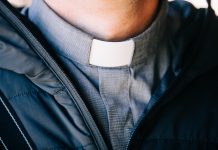
In his last report to the World Council of Churches (WCC) executive committee, WCC acting general secretary Rev. Prof. Dr Ioan Sauca expressed gratitude to WCC leadership and staff—and shared his reflections on moving forward.
“I never expected to serve as acting general secretary, certainly not for nearly three years,” he said. “What we achieved, we achieved together.”
Sauca also shared reflections from the WCC 11th Assembly. “Churches have asked us to remain the platform that brings Christians together even in very difficult times,” he noted. “Particularly during the COVID-19 pandemic, many of the requests that WCC has received from member churches have been for spiritual resources, biblical resources, or worship resources.”
He also noted that the WCC has received numerous messages about the positive impact that the assembly had and continues to have. “Seeing the world from the perspective of others, showing compassion for one another, and building trust as a vital part of our ecumenical journey are all signs of Christlike love that move us to walk truthfully and wholeheartedly beside one another,” he said.
As he shared reflections from pilgrim visits and inter-religious bridge-building, he mentioned South Korea, Moscow, Bahrain, the Middle East, Lebanon, Syria, Palestine, Israel, and Ukraine. “As my last travel, I am preparing to lead a WCC delegation to the Holy Land from 21-24 November,” he said. “The world, the churches and all people stand before a unique moment in history.”
We are experiencing global crises related to climate change, health, food security and energy, Sauca said. “We are not alone in facing these challenges, but we have a particular role in responding,” he said. “I would like to share three lessons from my experience that I think will strengthen the WCC, not simply in facing these challenges, but in acting together to confront them.”
He then outlined the convening role of the WCC; growing in fellowship; and strengthening the fellowship as three ways forward for a transformational future. “The relationships that nurture this one ecumenical movement have extended beyond the fellowship of member churches, to include churches that are not members of the WCC, and particularly Roman Catholic, Evangelical, and Pentecostal churches,” he said. “We have strengthened our relationships and cooperation with people of other faiths as companions on our pilgrimage of justice and peace, on the basis of our common values in responding to the pressing challenges of our times.”
He also recognized a growth in cooperation with the International Jewish Committee on Interreligious Consultations and with the World Jewish Congress.
“I also want to mention our cooperation with Al-Azhar and Human Fraternity, with Religions for Peace, and with Shia branches of Islam in Iran,” he said. “The pilgrimage is an opportunity to continue working with all people of good will, to ensure a better future for everyone and for our common home.”














